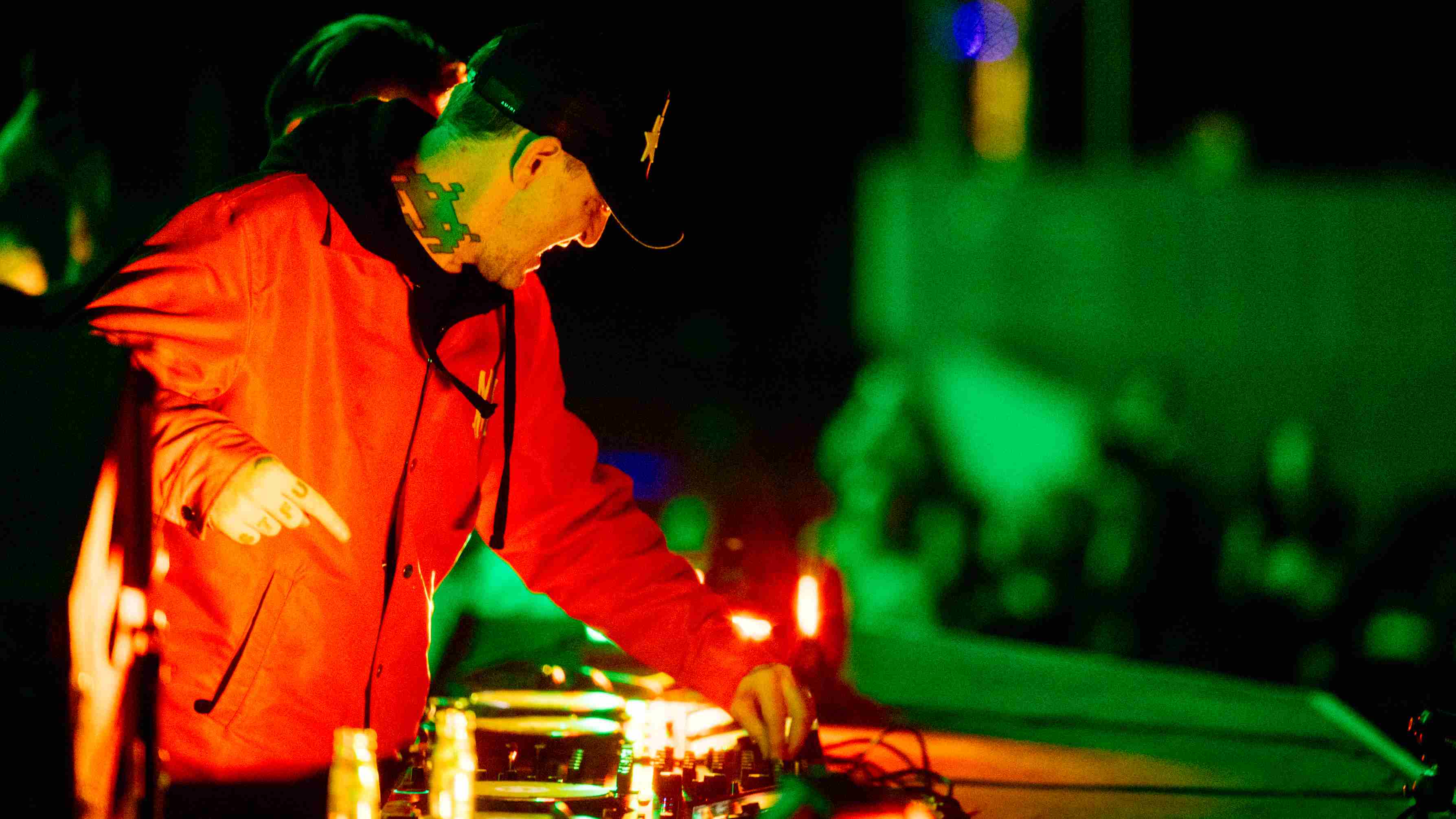Andy Meecham interview and video studio tour
As part of Chicken Lips, Bizarre Inc and as The Emperor Machine, Andy Meecham is one of the most respected producers in the UK.
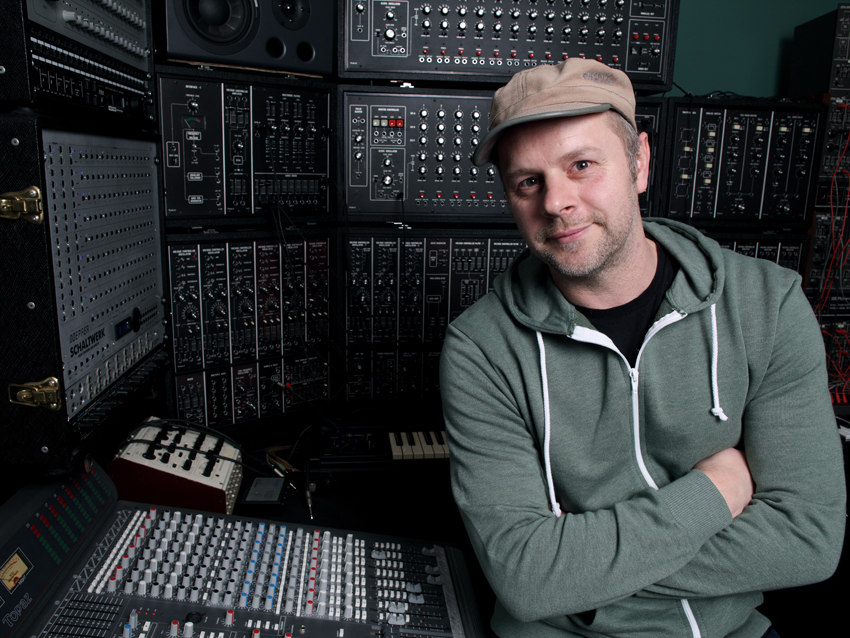
Andy Meecham
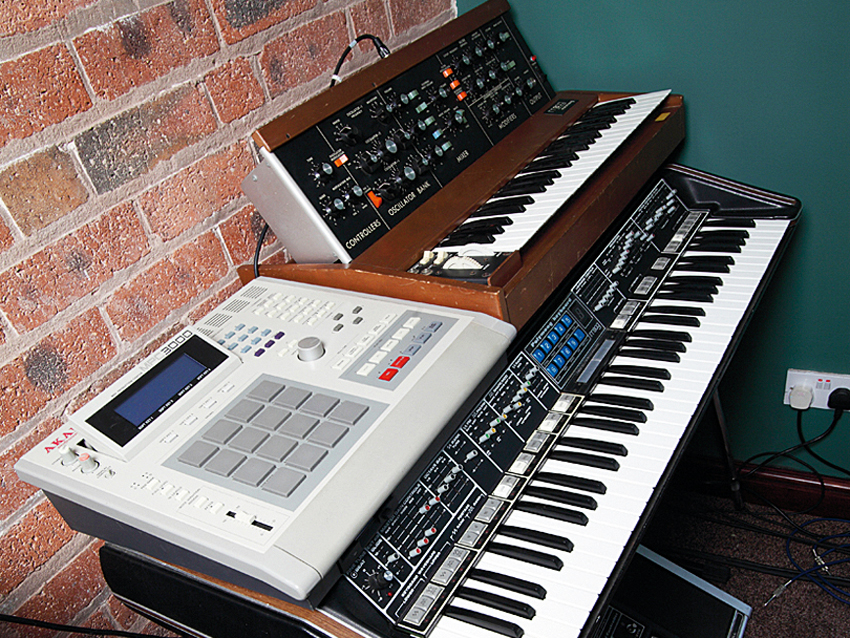
Andy's kit
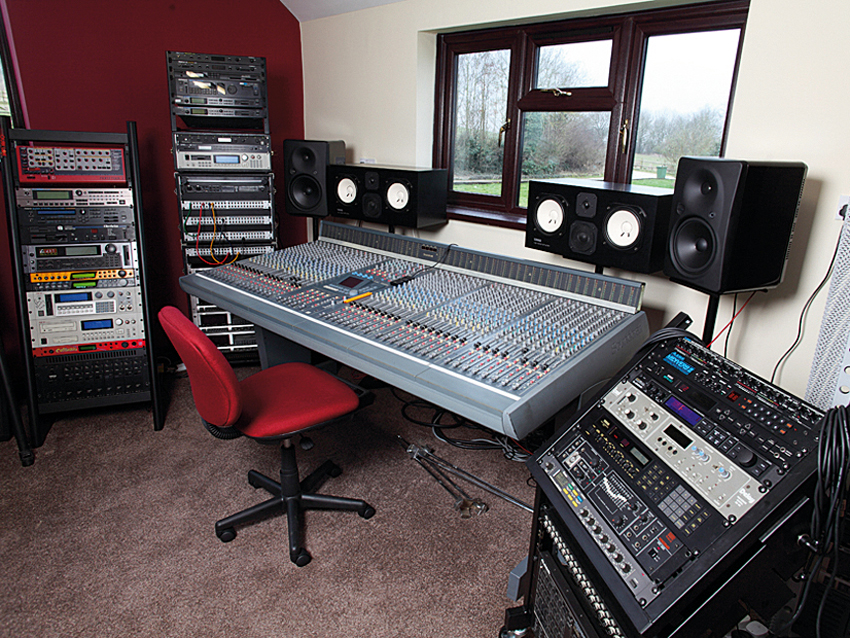
Studio
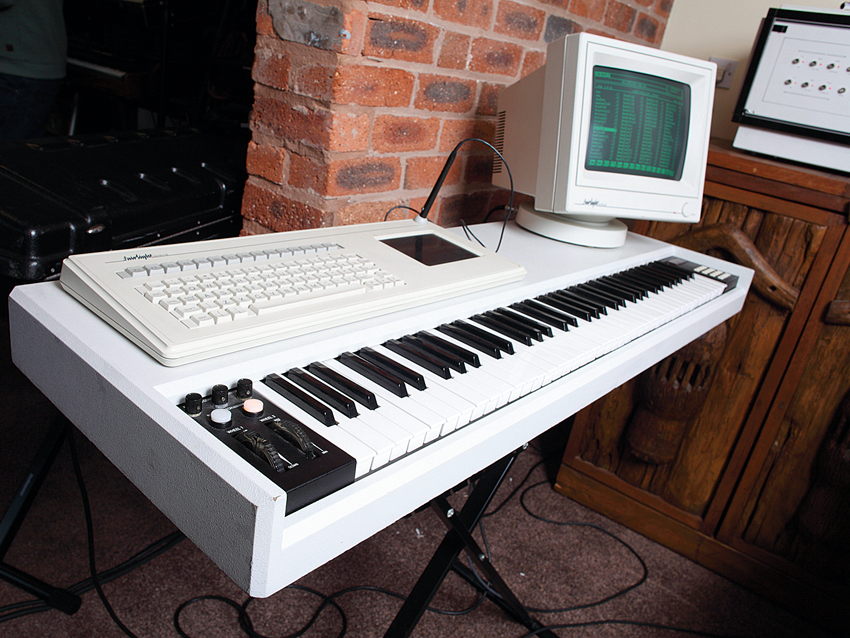
Fairlight CMI
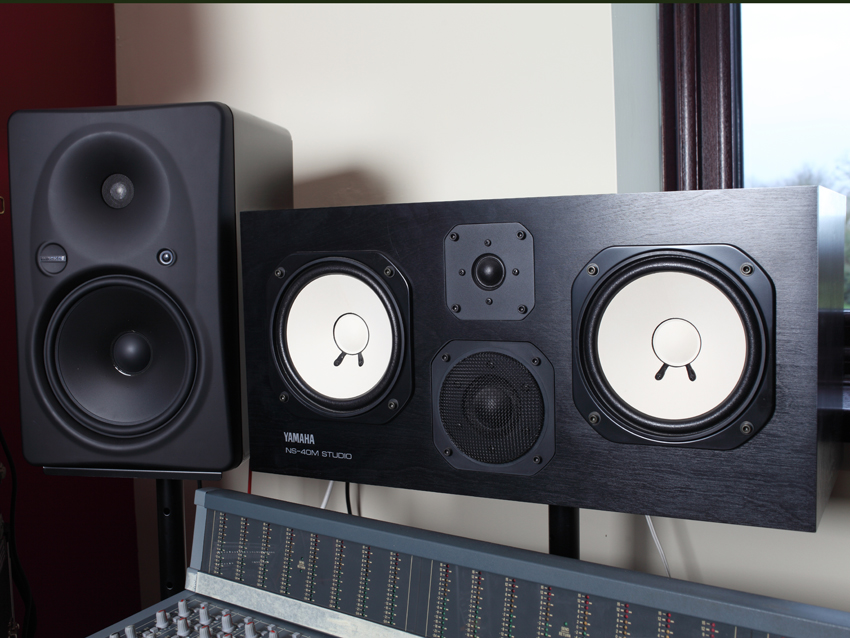
Yamaha NS40m
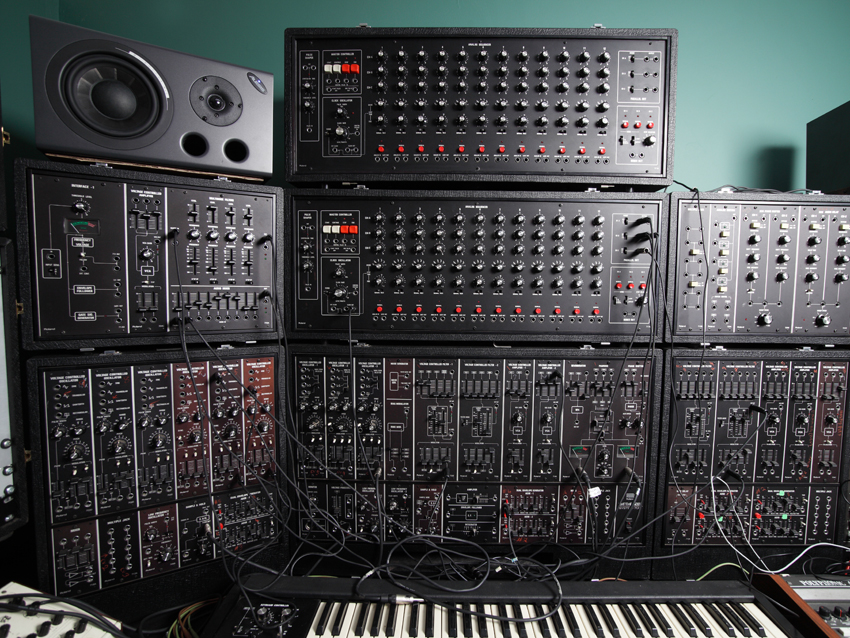
Modular
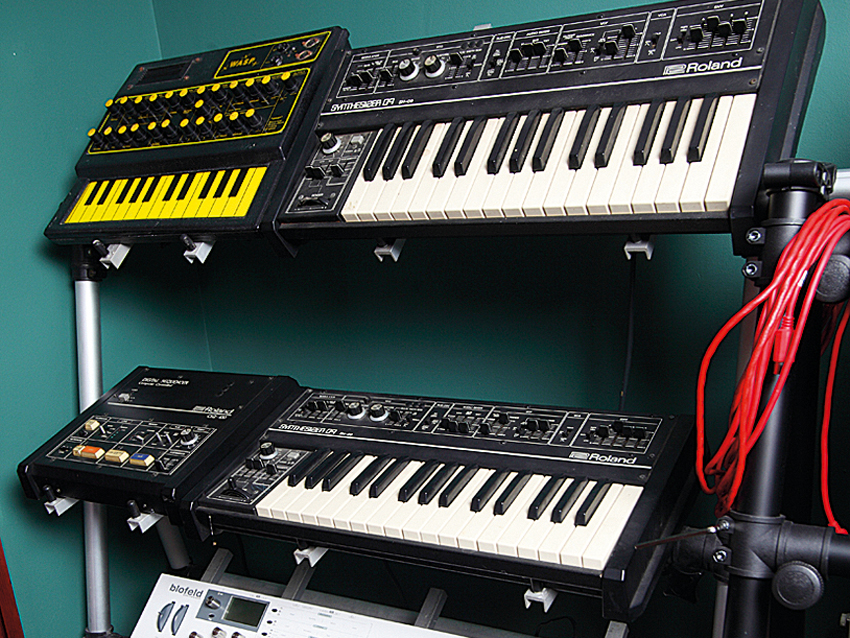
Wasp and SH Roland synths
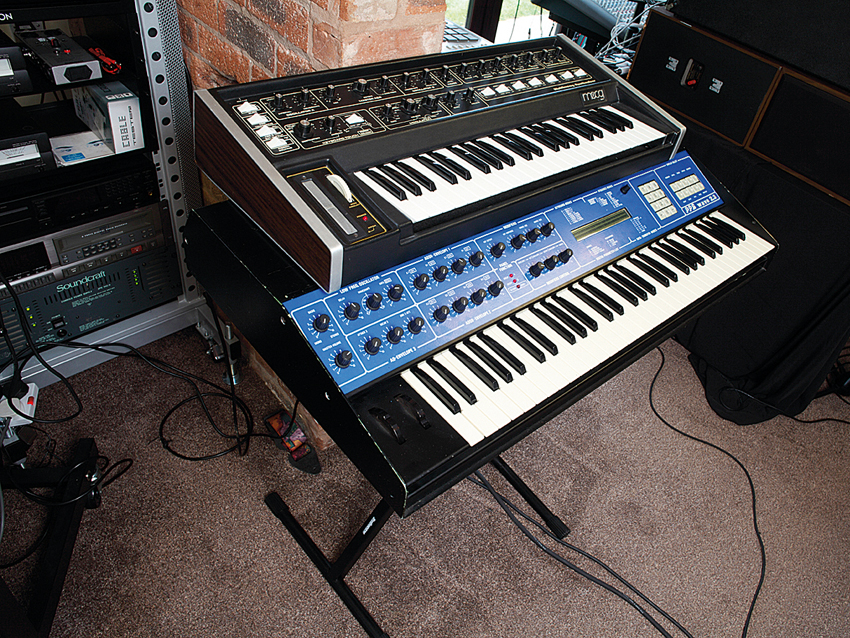
Synths
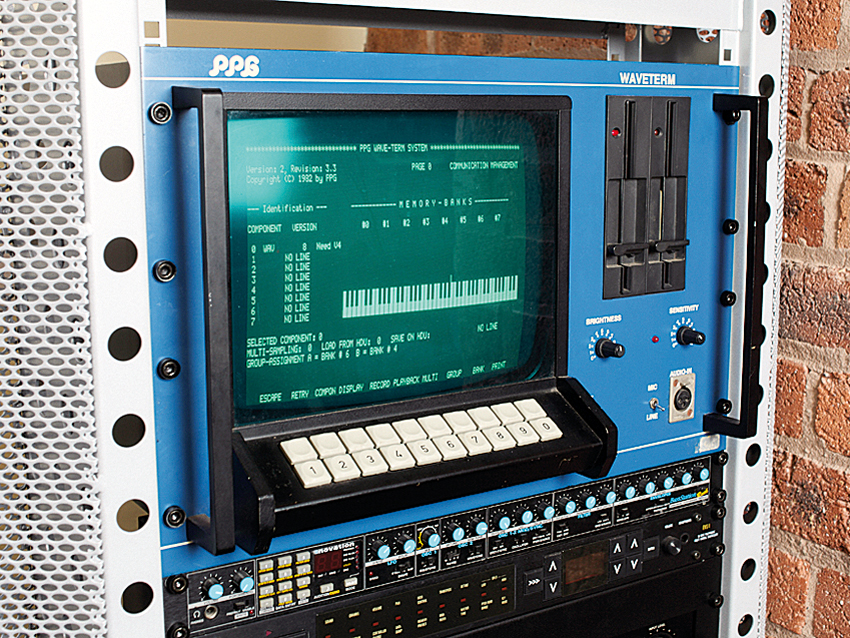
PPG Wave programmer
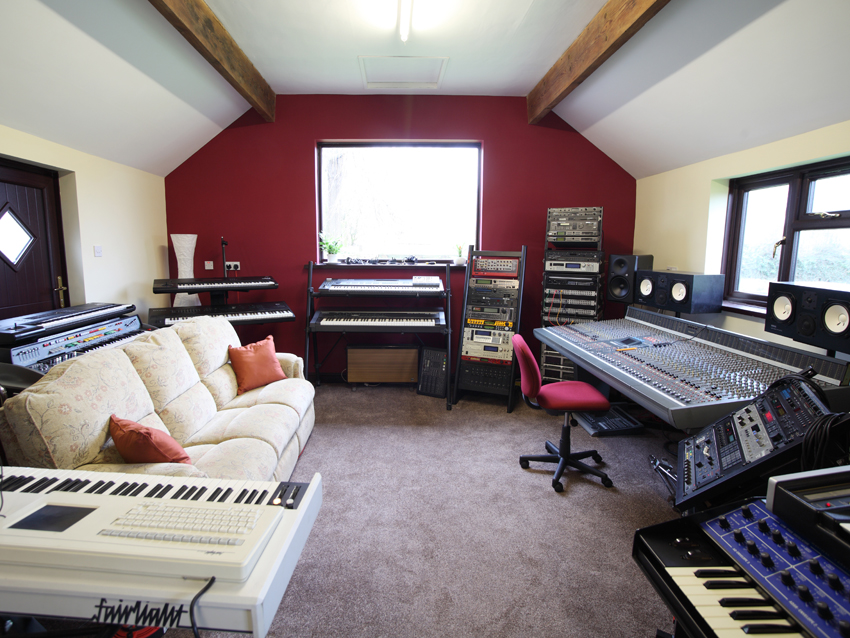
Control room
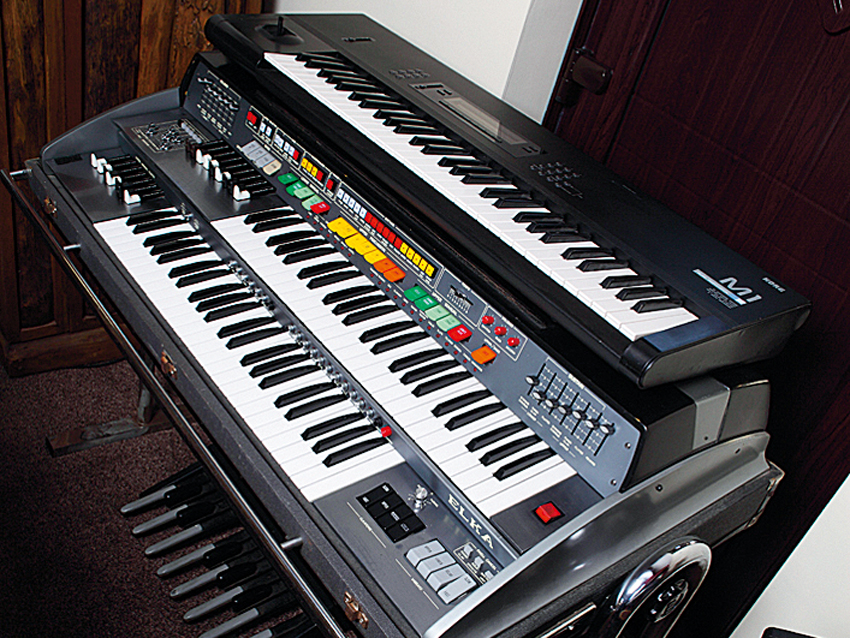
Elka and more
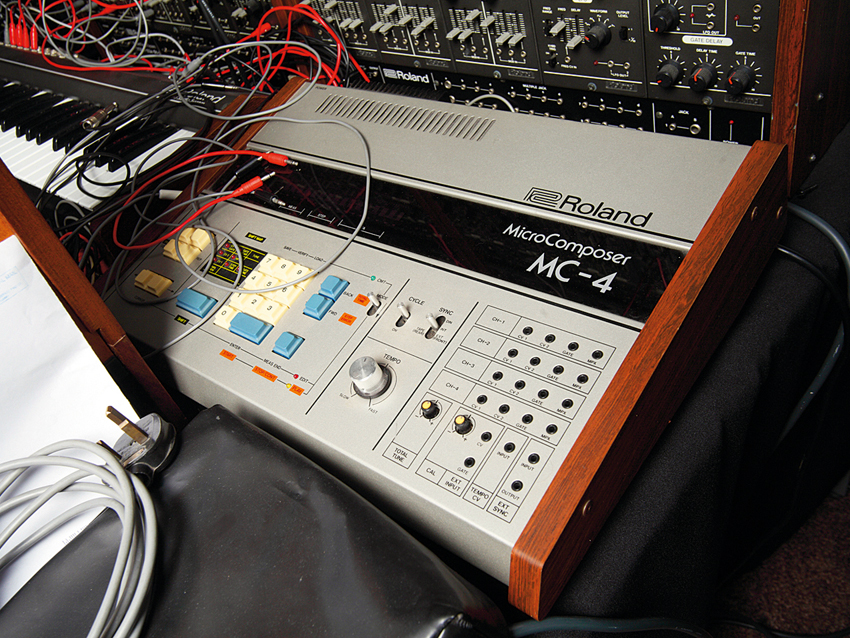
Roland MC-4
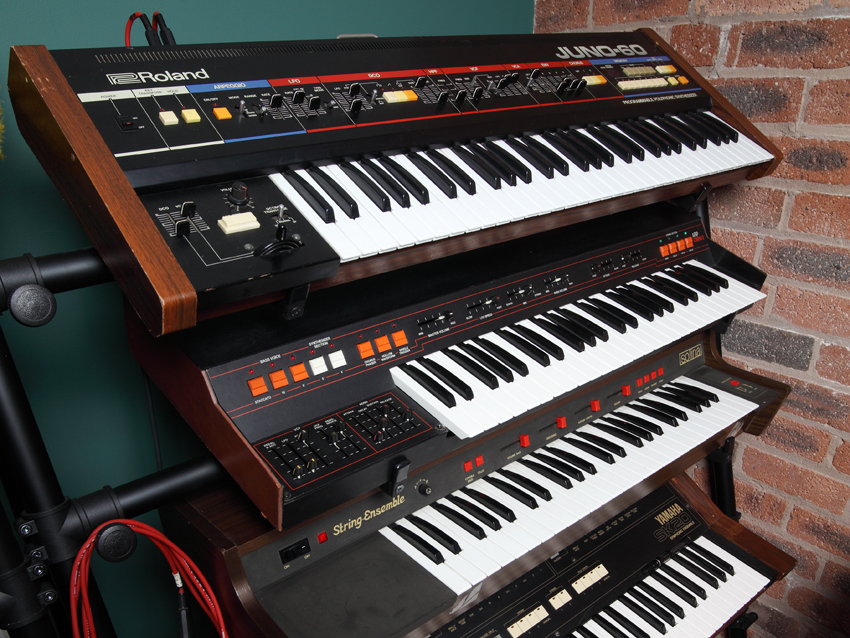
Roland Juno and more
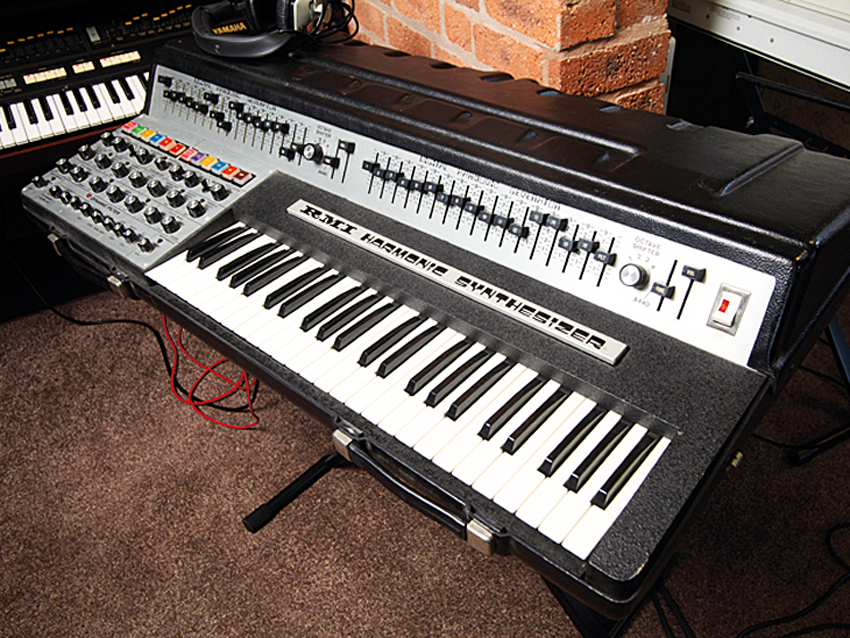
RMI Harmonic Synthesizer
About 40 minutes north of Birmingham, UK, sits Llama Farm. Hidden down some rather questionable roads, from the outside it looks like any other pretty, humble family farm. Step inside, though, and an impressive synth collection soon reveals itself.
Richard Hale, owner of Llama Farm, is the man responsible for amassing the gear and after a chance meeting with Andy Meecham - part of Chicken Lips and Bizarre Inc and the man behind The Emperor Machine and a new Future Four collaboration with Erol Alkan - they decided to put the synths to work for friends and guests. Ever since, Meecham has been locked away there, hard at work on new Emperor Machine material, remixes and finding time to carve out his Monophonic series, a collection of tracks made entirely on single synths. FM visited the synth sanctuary to find out more...
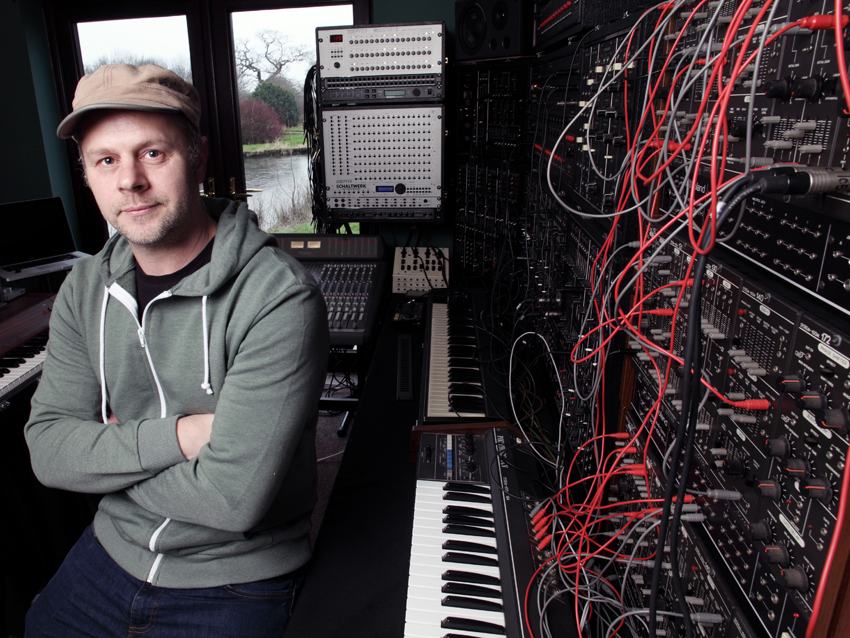
What got you into the equipment and engineering side of music-making?
"My Dad was really into hi-fi equipment so there was quite a lot in the house. When I was about five or six, him and his brother would be testing speakers and they'd say, 'Hey, Andrew, check out this sound. It goes from one speaker to another!' I used to pretend I was a DJ and make my own radio shows with my tape recorder. Strange noises like Doctor Who and just general effects and reverbs always fascinated me.
"My uncle had a lot of guitars and keyboards in his house, so music and technology were around me all the time. It felt like the natural way to go. I always wanted to be in a band and one day I answered an ad for a studio keyboard player. That's how I got into Blue Chip. That was also my first record deal - it was one sheet of A4 and I got two per cent! That's where it all started."
There was a lot going on at Blue Chip at the time.
"Yeah, that's where I met Dean [Meredith] who was working in there with Mark Archer, who were Bizarre Inc. Me and Chris Peat came in as keyboard players and engineers to move things on a bit. Mark ended up working with Chris and formed Altern8, and I stayed with Dean and kept Bizarre Inc going. We signed to Vinyl Solution afterthat. We did release some music on Blue Chip but I was more of an engineer than a player, even though I hated engineering! I guess I always found it quite stressful.
"As Bizarre Inc we did Playing With Knives, which was probably the biggest track, and then I'm Gonna Get You. Originally, they weren't Pop tracks but they kind of got labelled that way because they became popular. I started doing Sir Drew as a sideproject on Kingsize Records, then Dean and I formed Chicken Lips for Kingsize. I signed to DC [Recordings] as The Emperor Machine and we also recorded the Big 200 on DC. We just kept making music all the time."
What were the main bits of gear on those projects?
"The Akai S950. I still use that. I used the MPC60 too, and I used to gig Sir Drew stuff with a 60 and a 3000. The first synth I bought was a little grey Yamaha - I can't remember the name - but the most important was the [Roland] SH-101. After that, I got a [Roland] Juno-6 and a Kawai K1."
Get the MusicRadar Newsletter
Want all the hottest music and gear news, reviews, deals, features and more, direct to your inbox? Sign up here.
Were you DJing at the time?
"I went to work in a night club as a sound engineer and lighting technician before I started at Blue Chip. On the days when I wasn't doing lights, I used to DJ. Then as the studio side became busier, I had to leave the club and focus on it full time."
"Having someone else capture your ideas when you're playing and working with a producer who'll push ideas is really amazing"
So you had access to a full-time studio during Bizarre Inc and Chicken Lips? When did you think, 'Maybe I could do this at home?'
"I could only ever get so far at home. I had a Tascam MM1 mixer, then I bought this old HH mixer that had a great delay and reverb on it. When we demoed Playing With Knives and things like that, we did it at my house on the 101 and the 950. Then we went to a place called Out Of The Blue in Manchester, which has since burnt down. We went there because 808 State and Spiral Carpets had gone there.
"That was the first time I'd ever seen an engineer spend hours on a kick drum! He just left it running for hours! He helped make that track [Playing With Knives] what it was really; the power of it. We wouldn't have had a clue. We were just messing around."
So collaboration is important to you?
"You know, there's nothing better than working in a big studio with other people. I worked in a residential studio once called Jacob's Place where you could eat and sleep and that was brilliant. Having someone else capture your ideas for you when you're playing and working with a producer who will push ideas is really amazing. Quite often, when I'm riffing I'll just keep tweaking and that's when I'll miss things. I like having someone listening who can say, 'Wait, go back a second. That bit was great!' That was Dean's role in Chicken Lips, once he'd done his drums."
-------------------------------------------------------------------------------------------------------------------------------
Llama Farm Studios - After a chance introduction, Andy Meecham and Richard Hale have turned a synth collection in storage into a functional residential studio
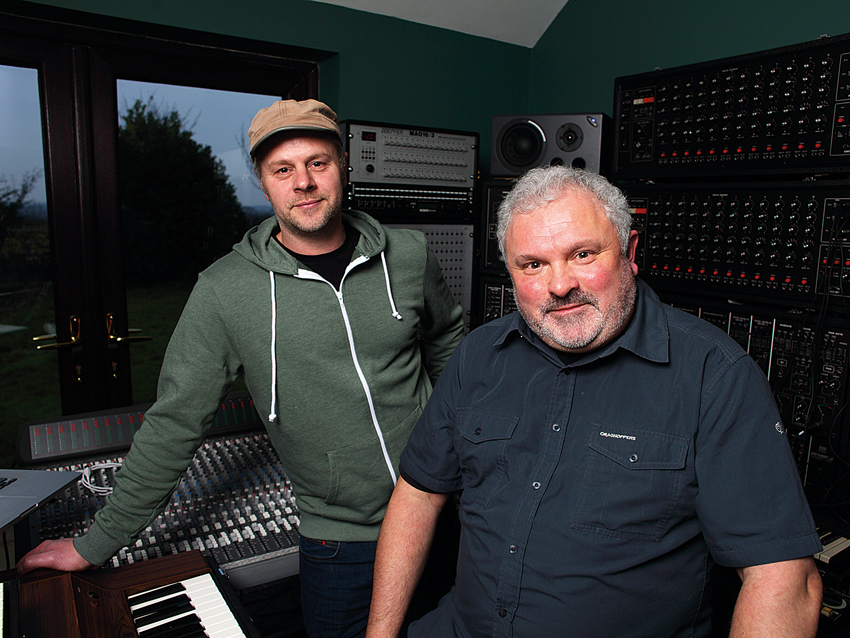
How did you two meet?
Andy Meecham: "A friend of a friend said, 'I know someone whose got a synth collection. You should meet'. Turned out Richard was living eight minutes away from my house! We decided to start a company out of Llama Farm as a synth resource. It's not 100 per cent finished yet. There's still a lot of treatment to be done to the rooms and we've got to fix the Polymoog and Simmons kit!"
Why did you start collecting?
Richard Hale: "I got my first synth,the Roland SH-09, back in 1980 when it was brand new. I picked up a Digisound Modular after that and it just kind of spiralled from there. I was more interested in modular synths and off-the-wall synthesis. Some of them I bought as investments because it was the right time and others I bought because I always wanted them, like the System 700. That's my favourite."
Which is your favourite, Andy? AM: "All of them! No, I think they have all got something special but maybe the RMI [Harmonic Synthesizer] is my favourite. Really, the best synth is the one that works for the track you're working on. They've all got their strong points. The modular is just no good if you're looking for something quickly to get ideas down. I've brought some of my own stuff over here as well, like the MPC [3000]. I'm slowly moving over my studio in between making tracks and also remixing."
Are you going to open it up for hire?
RH: "Only via invite. We're thinking that [Llama Farm] will be more of a synth resource than an actual commercial studio."
AM: "Yeah, you would only need to come for a couple of days. There are some beds here that you can sleep in and then you can record all the synths you want!"
Is collaboration why you wanted to open Llama Farm?
"To work here is just a dream come true. I obviously always wanted to play on a [System] 700 but never thought I would. When I first met Richard, I couldn't believe it. All of the equipment, which is now set up, was in storage at the time. We chatted about doing something together and I said 'You need to keep this running', so I took on the role as manager but basically I just come in and play! [Laughs] I've got some nice stuff at home but once it's all together here there's nothing compared to it. I'm really lucky."
Why did it take so long to start making more music as The Emperor Machine?
"Well, it was a couple of things. DC didn't go tits up, as such. People just went their separate ways. James [Dyer], who used to run the label, started a different company and was doing other things and Tom [Relleen] plays in the band The Oscillation so he was gigging a lot. The Emperor Machine started after a conversation with James at DC. I basically did a track just on the [Roland] SH-3A because I read a quote saying it was a shit synth but I didn't think it was. I recorded that on an MPC, sent it to James and he loved it. So I did one with the Roland Promars and that's really how Monophonic Volume One started.
"[Making a track] on one synth makes you work harder. You have so many options now, it's nice to work on one piece of kit"
"I was constantly releasing quite a lot of stuff and we were gigging, but then the drummer and guitarist both had to leave and it kind of fizzled out. I didn't know what to do so I just carried on working on other things. The Emperor Machine is quite a passionate thing and I knew I'd come back to it. I'd known Nathan [Thrusting] from back in the Surgery days so we decided to resurrect it. I wanted to do it all here [at Llama Farm] and work with a vocalist. I met Michelle [Bee, singer, songwriter] through a Facebook message and we just clicked. She came here and we got on really well. She's written some great lyrics."
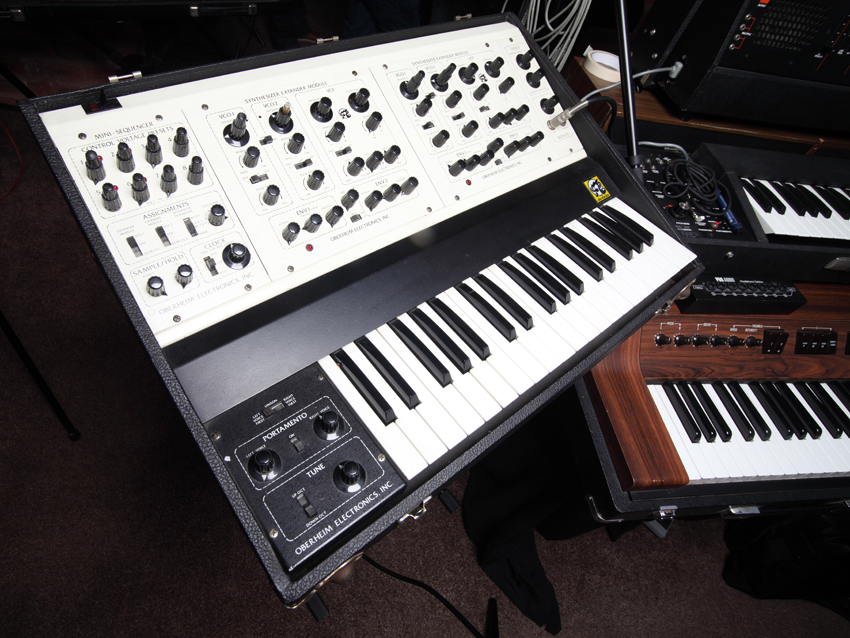
The idea of forcing yourself to make a track on just one synth is interesting. Benge and Todd Terje have both done that before, to name just two. So what's the appeal?
"Basically, it makes you work harder. The track I did with the [Oberheim] SEM was the most difficult. The 101 was really hard - trying to get lots of different vibes from that synth was challenging. It's an exciting thing, though. You have so many options now - and I do especially in this studio - that it's nice to just work on one piece of kit. It's very rewarding and it also reminds me of a long time ago with the Kawai K1 or even the M1. It always felt like you weren't allowed to use presets and that you had to change them somehow! I've never really been into digital synths and plug-ins but I like Reaktor and [GForce] Minimonsta."
You've stopped DJing, right?
"I did. I've been asked quite a few times and I'm starting to feel guilty about always saying 'No'. I've also been asked to play live but I don't have a band at the minute so I need to get that sorted. I'm trying to think of a way to do it without a drummer so I'm thinking of using the MPC.
"DJing is a whole other issue. When I stopped DJing, I was using vinyl. There was no CDJ-2000s or Traktor. I've got Erol [Alkan] telling me that I've got to try the 2000s and I've tried out Traktor and think it's great, but I've got to transfer everything I have on vinyl to digital so I've got to make the right decision! If I'm being terribly honest, I don't really follow the newest music coming out of the UK as much as I should. I kind of get wrapped up in a vintage album and then go off into my own world sometimes, but it's important to try and listen to what's going on. Quite often when I'm working on a mix, I'll go onto Picadilly or Phonica and listen to what's coming out and what's new. Dean is always finding new stuff."

Is there any synth or bit of kit for the studio that you really want?
"I've always wanted a [Roland] SH-5. I've got a 3a and a 7, but I've just always wanted a 5 for the collection. The Roland stuff has a really fat sound, even though the Moog stuff is better for gigging. When I was using an SH-101 live, I couldn't hear it properly. I'd be doing my thing, and I'd see what it was bashing the meters, but it just didn't cut through. Then I'd switch to a [Moog] Prodigy and you could hear it straight away. There's just something about the filter that slices through. Though even within Roland's own collection their synths sound totally different. I mean, the difference between the System 700 and the System 100 is huge."
Finally, would you consider releasing a Monophonic Volume Two?
"Yeah, whatever's in Llama Farm that's monophonic is gonna be on there! I'm gonna have to start it soon because if I don't it won't happen. It'll be a nice break from The Emperor Machine, just working on one synth every now and then."


Future Music is the number one magazine for today's producers. Packed with technique and technology we'll help you make great new music. All-access artist interviews, in-depth gear reviews, essential production tutorials and much more. Every marvellous monthly edition features reliable reviews of the latest and greatest hardware and software technology and techniques, unparalleled advice, in-depth interviews, sensational free samples and so much more to improve the experience and outcome of your music-making.
“A fabulous trip through all eight songs by 24 wonderful artists and remixers... way beyond anything I could have hoped for”: Robert Smith announces new Cure remix album
“He knows what I'm thinking and feeling before I even know it": Billie Eilish suggests that she and brother Finneas can read each other's minds










